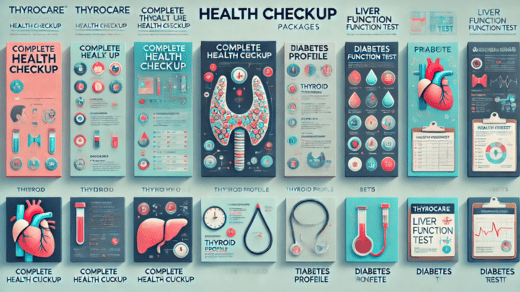According to several studies, millions of people are suffering from diabetes. Having uncontrolled high blood sugar levels or hyperglycemia can lead to various major health complications in the long run. High blood sugar levels can contribute to long-term health conditions like heart disease, eye problems, gum issues, nerve damage, blood vessel damage and even stroke. This is why people with diabetes need to manage their blood sugar levels. You can also get your blood sugar levels detected through a full body checkup.
Nearly one in every four adults has prediabetes, and most of them do not know about it. However, if you have diabetes or prediabetes, you can easily manage your condition by improving your diet and certain lifestyle habits. In this article, let’s explore some effective ways to manage your blood sugar levels.
Effective ways to manage your blood sugar levels:
- Do regular exercise: Regular physical activity can help you manage your body weight and induce your insulin sensitivity. Increased insulin sensitivity can help your body cells use glucose efficiently. Physical activities also help your body muscles use glucose for energy and muscle contractions. Doing regular physical activity does not only indicate high-intensity exercise, you can try low to moderate-intensity aerobic as well. If you find it difficult to exercise, you can simply try walking or running. This can also benefit you by increasing your insulin sensitivity.
- Reduce your intake of carbohydrates: Carbohydrates increase your blood glucose levels more than any other food. That is why if you are trying to reduce high blood sugar levels, consider limiting your carbohydrate intake. You can also try having a low-carb diet, which can be beneficial to manage your blood glucose levels. If you are having difficulties maintaining a low-carb diet, consider consulting a dietician who can help you customize a diet suitable for your condition.
- Maintain a healthy body weight: Maintaining a healthy body weight can help you manage blood glucose levels. Several studies have found that there is a link between type 2 diabetes and obesity.
- Control your portion size: According to several studies, controlling your portion size can help manage your weight and blood sugar levels. You can try eating your meals in small portions throughout the day, which can help you maintain moderate weight and blood sugar levels.
- Eat low-glycemic index foods: The glycemic index indicates how fast carbohydrates break down in your digestive system. This impacts how quickly your blood glucose levels elevate. There is a study that found consistent consumption of low-glycemic index foods can reduce blood sugar levels in diabetic patients. Non-starchy vegetables, oats, lentils, legumes, beans, barley, and whole wheat pasta are some common examples of low-glycemic index foods.
- Control your stress levels: Stress is one of the main factors that affect your blood sugar levels. When you are stressed, your body releases cortisol and glucagon which raises the blood sugar levels. You can try meditation, yoga, deep breathing, psychotherapy or journaling to manage your stress levels.
Managing your blood sugar levels is important to prevent hyperglycemia. There are various ways in which you can manage your blood sugar levels. If you are having difficulties managing your blood sugar levels, you can consider checking your blood sugar levels with thyrocare packages.

